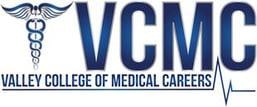Pharmacy Technician Employment Rates Will Rise By 12 Percent

A Pharmacy Technician is a licensed healthcare para-professional who performs pharmacy-related functions working under the direct supervision of a licensed pharmacist. Pharmacy technicians work in a variety of locations, including community, close-door, retail, and hospital pharmacies. Pharmacy technicians can also be employed by long-term care facilities, pharmaceutical manufacturers, third-party insurance companies, or by the government.
Job duties include dispensing prescription drugs, and other medical devices, to patients and other healthcare professionals and instructing on their usage. They may also perform administrative duties in pharmaceutical practices, such as reviewing prescription requests with doctor’s offices and insurance companies, to ensure that the correct medications are provided and payment is received.
Increased demand, for prescription medications, will lead to more demand for pharmaceutical services. According to the Bureau of Labor Statistics, BLS, employment of Pharmacy Technicians is projected to grow twelve percent from 2016 to 2026. This rate is much faster than the average growth rate for all other occupations. In 2016, there were 402,500 jobs available, for Pharmacy Technicians, and the BLS estimates that by 2026 the job number for this sector will increase by another 47,600.
The median wage, for Pharmacy Technicians, in the United States as of May 2017 was $31,750. Most Pharmacy Technicians enter the field, by enrolling in a state-accredited medical career college, following high school graduation. However, becoming a Pharmacy Technician can be an attractive option for others looking to enter the workforce following a life change like divorce, children leaving home, unemployment, or uncertainty in their current position.
Accredited medical career colleges, offering programs in pharmacy tech find that most of their students graduate in ten months or less. Well-established and reputable colleges, like Valley Medical Career College, can assist their students with earning a high school diploma, and receiving financial aid, government grants, GI Bill benefits, and job placement after graduation.
Experts anticipate that the medical industry will continue to face severe employment shortages. The rapid aging of the American population is creating hundreds of thousands of stable white-collar opportunities for many job seekers. Medical career colleges who offer Pharmacy Technician courses, among others, are a great way for people looking to improve their personal and professional lives to do so in a relatively short period of time.
Photo by Clem Onojeghuo on Unsplash



